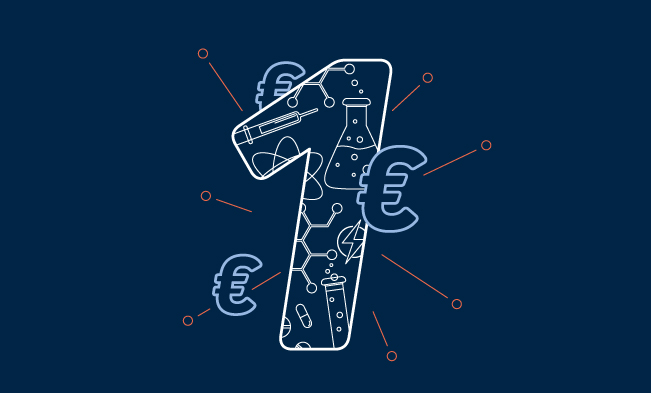AI is No Privilege
Co-Creation – WestAI opens pathways to AI
WestAI aims to open the door to artificial intelligence for small and medium-sized enterprises. In particular, companies that have had little to no prior experience with AI are encouraged to explore its potential for their business.
May 2025
Not a privilege reserved for big tech companies
“Artificial intelligence must not be a privilege reserved for large tech corporations. Smaller businesses also need access—especially those that don't know where to start,” says Fritz Niesel, an AI expert from Jülich. This is where WestAI comes in—a KI service center formed by several research institutions in North Rhine-Westphalia. In addition to cutting-edge technology, companies receive the support they need to integrate AI into their everyday operations.
Niesel knows the challenge from personal experience. He began his career as an IT consultant at SAP. As an expert in business informatics and data science, he helped companies optimize their systems—and repeatedly encountered the same issue: companies recognized the need for change but didn’t know how to approach it.
From Industry to Research
“I often saw that companies recognized the potential of AI but didn’t know how to put it into practice,” Niesel recalls. “What’s needed is not just the technology, but also support with practical implementation.” WestAI addresses this need with a strong focus on guidance and support through the complex AI landscape. The Federal Ministry of Education and Research is funding WestAI as one of four AI service centers, with the goal of accelerating the transfer of AI research into industry.
»Our goal is to make it possible for every company to take its first steps into the world of AI.«
Fritz Niesel
AI Consultant at WestAI
Case Study: Rehabilitation Facilities
One example of WestAI’s approach is its collaboration with the REHA-Betriebe Erftland. Around 900 people with disabilities work there. Internal communication poses a major challenge. Many documents and instructions need to be translated into plain language to ensure they are accessible to everyone.
In a workshop with employees, Niesel and his colleague Jan-Henrik Woltersmann from RWTH Aachen University developed an AI-based translation solution. The challenge: the AI needed not only to translate but also to adapt to the language style and needs of the users. To create a practical solution, they tested and refined the AI directly with staff on site. “Technologies like this shouldn’t be developed in isolation in a lab—it’s far better to create them together with the people who will use them later,” says Niesel. Today, the solution helps reduce language barriers in everyday work—a successful example of how tailored AI applications can strengthen social inclusion.
Research in AI at Forschungszentrum Jülich: Learning Machines

Dialogue as a Foundation
What makes WestAI stand out in Fritz Niesel’s view is the close exchange between science and industry. Niesel is convinced: “AI thrives on real-world use cases—developed together with companies.” At WestAI, technology is not simply “delivered”—solutions are created through direct dialogue and collaborative development. The AI service center evaluates various language models—from open-source options to commercial systems like GPT-4o—based on the specific requirements and data protection needs of each company.
Especially when dealing with sensitive data, security is crucial. WestAI takes data protection seriously and adapts to the individual needs of businesses. For example, when working with the REHA-Betriebe, the WestAI team chose the GPT-4o language model, prioritizing ease of use and high-quality results.
In other projects, models hosted on German servers are used instead of GPT-4o, in order to better meet regulatory requirements.
Entering the World of AI
For companies still uncertain about AI, WestAI offers an independent alternative to commercial consulting. In a non-binding initial consultation, individual needs are analyzed and first insights into AI possibilities are provided. “Our goal is to enable every company to enter the world of AI,” emphasizes Niesel.
Helmholtz AI Hub: Develop and Apply AI efficiently
The focus is not on sales but on identifying individual potentials and requirements. The experts also assess whether AI is the right solution at all or if traditional software development would be more effective. WestAI itself does not implement finished products but concentrates on consulting, knowledge transfer, and prototype development. For successful implementation, it is important that companies have their own IT expertise—especially to be able to independently continue working with prototypes later on.
For Niesel, it is clear: AI is a tool that opens up new opportunities, particularly for small and medium-sized enterprises. Initiatives like WestAI demonstrate that getting started doesn’t have to be complicated—above all, it must be achievable.
Image credit: Generated with AI / Fritz Niesel
Dive deeper into the current issue
When research, industry, and society unite their perspectives, they create solutions greater than the sum of their parts.
In the Endeavours magazine, discover how co-creation works — through real stories of collaboration, pioneering spirit, and successful transfer.








